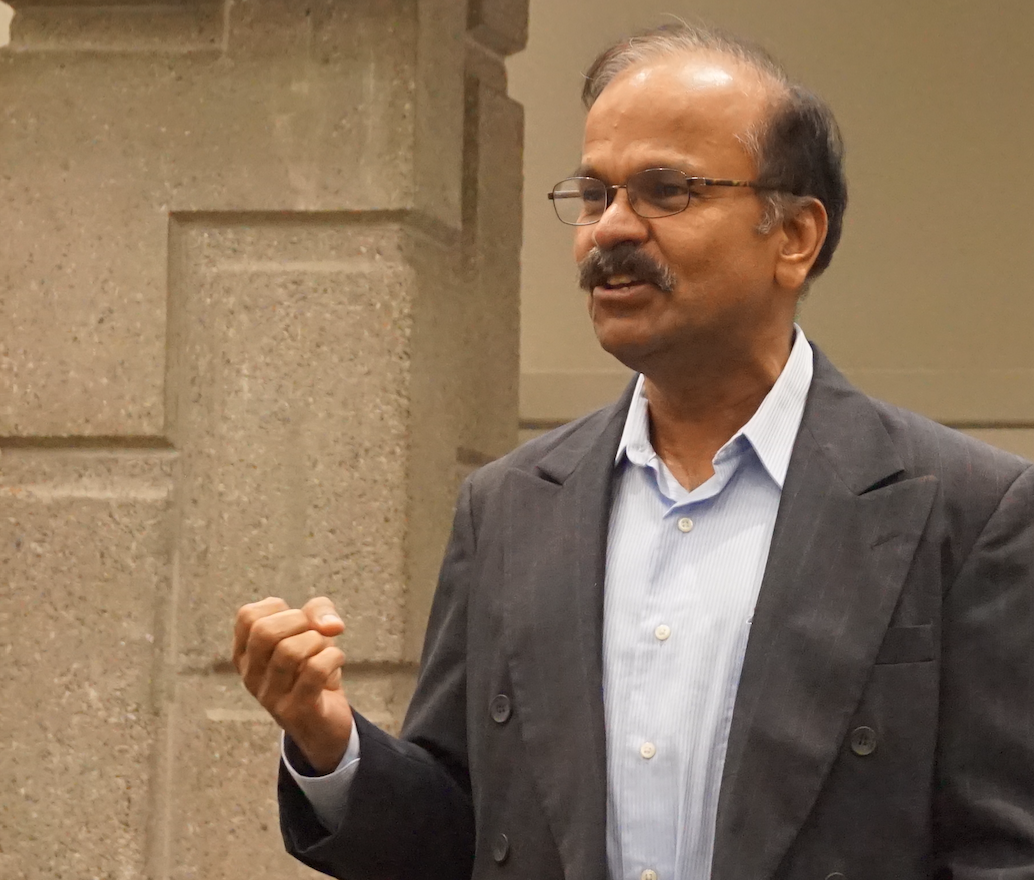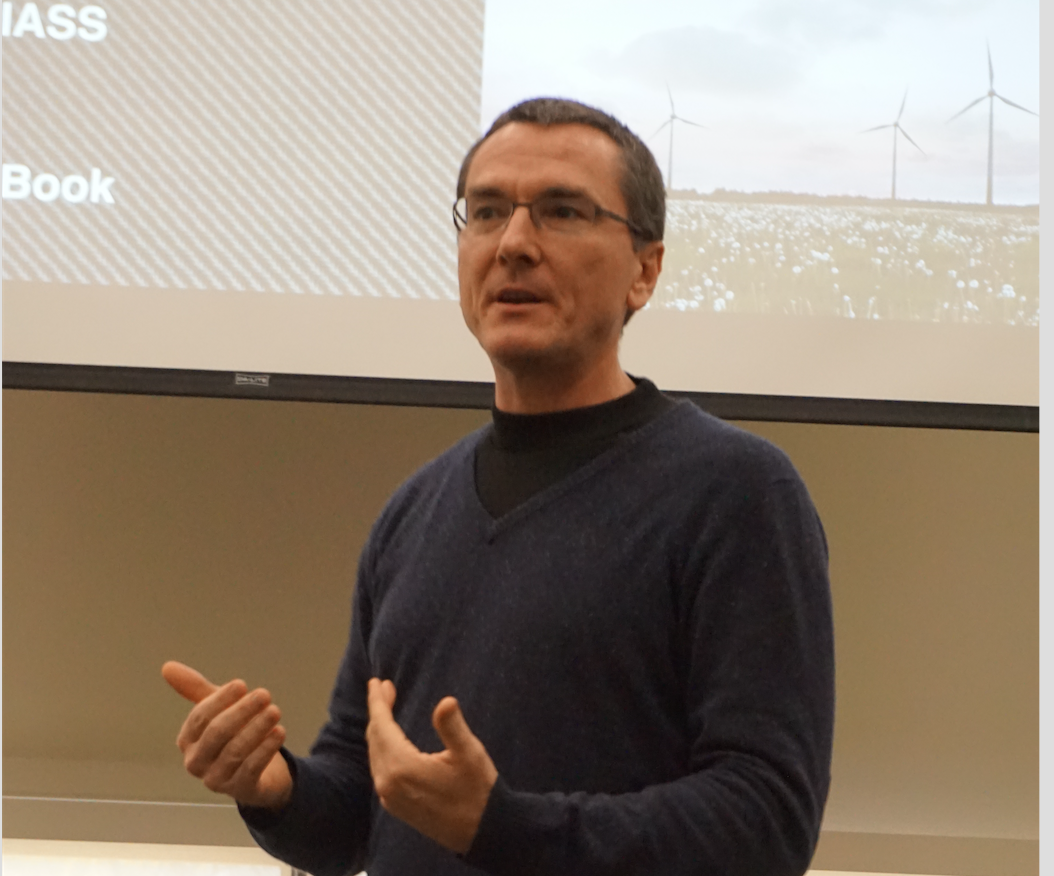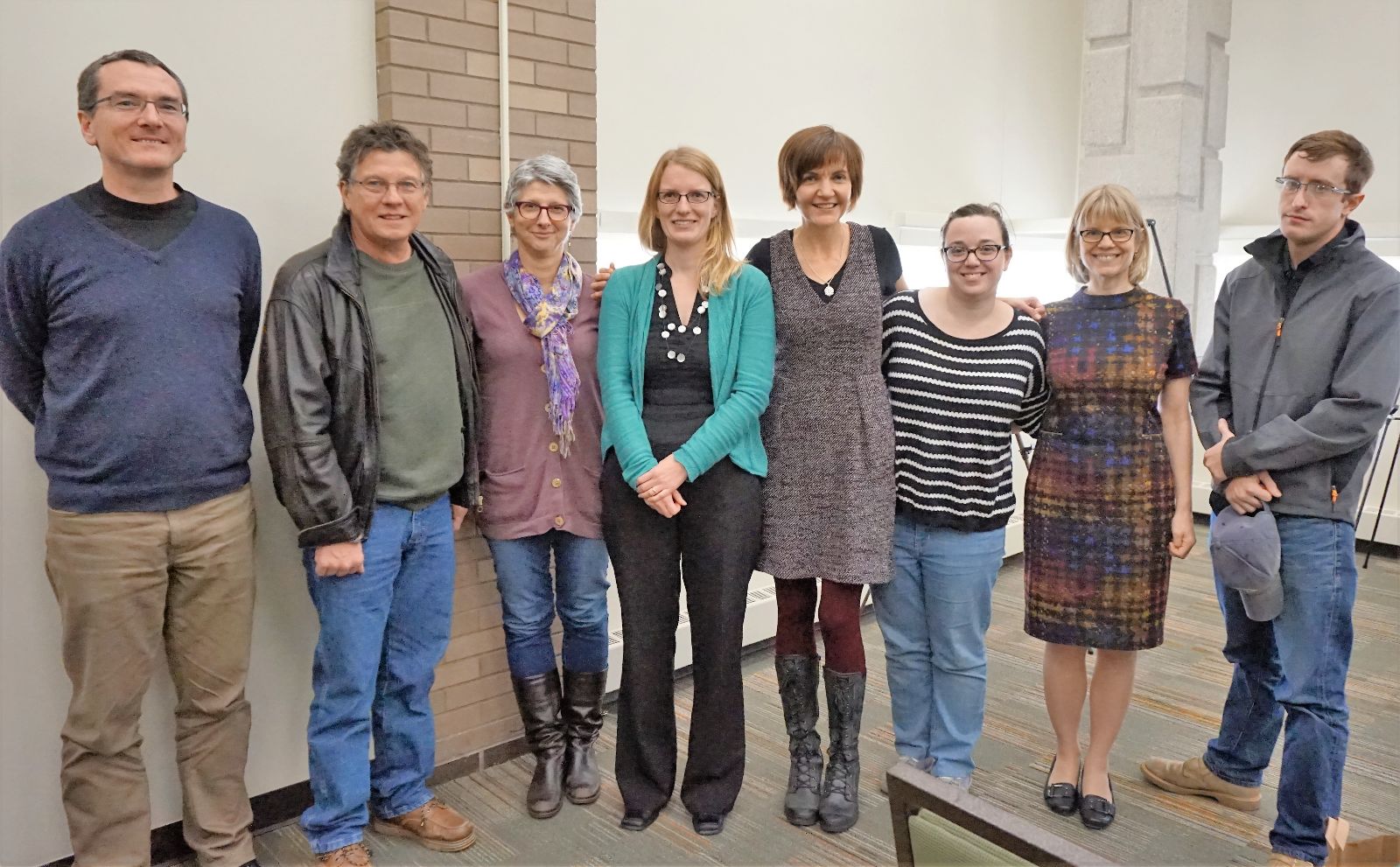Faculty organize event on energy innovations
The day started out with a Wayne State faculty panel from different disciplines. Leela Arava, assistant professor in the College of Engineering, presented his research group's work.

This research group, under Professor Arava's leadership, brings together undergraduate and graduate students as well as postdoctoral scholars who research and develop sustainable batteries.
From innovations, the conversation shifted to legal aspects of energy policy. The Director of the Transnational Environmental Law Clinic at Wayne State, Nick Schroeck, spoke about challenges and initiatives for energy law and policy in Michigan. Mark Baskaran, professor of geology, completed this local experts' panel by giving a broad overview over energy sustainability and the impact of nuclear accidents on human society. One of his research themes is to examine and track marine life. In the wake of Fukushima, he could show how quickly fish that had been exposed to radiation traveled from Japan to the western coast of the United States. An enlightening demonstration of the global connections in our world when it comes to energy and the environment.

During a lunch break, the audience observed an installation of photos from Chernobyl. Wayne State student Steve Andre had traveled to the Ukrainian town, which is the location of the 1986 major nuclear accident, and taken impressive photos as well as aerial drone video footage.
It was interesting for all of us to see the pictures of people who had returned to their homes within the zone around the nuclear reactor. The guest speaker from the Institute of Advanced Sustainability Studies in Potsdam, Germany, Craig Morris, rounded out the event.
Craig Morris is the co-author of "Energy Democracy," the first book on the German transition to renewable energy. His talk focused on the role grassroots movements played in shaping official German energy policy and looked back to the 1970s and 1980s when these initiatives started.
In Germany, consensus is the key to political decision-making, therefore, the energy transition began with citizens from all political camps and was instituted as official policy by the conservative government. Comparing this collaboration of conservatives and conservationists to the U.S., Craig Morris ended with a plea for a bottom-up approach here as well."¨
 The day reinforced that to grasp the multifaceted nature of the energy discourse, we need knowledge from many areas: history, the sciences, and law all provided different insights that allowed us to see (transnational) connections and to explore the causes and reasons for developments in the energy sector. Arts, in the form of photography, made the consequences tangible and the plea for change even more powerful.
The day reinforced that to grasp the multifaceted nature of the energy discourse, we need knowledge from many areas: history, the sciences, and law all provided different insights that allowed us to see (transnational) connections and to explore the causes and reasons for developments in the energy sector. Arts, in the form of photography, made the consequences tangible and the plea for change even more powerful.
We thank the Global Studies Program, CMLLC, the CMLLC Colloquium Series, the German Club, CLAS, the Sustainability Scholars Forum, and MSU for their support of the event.